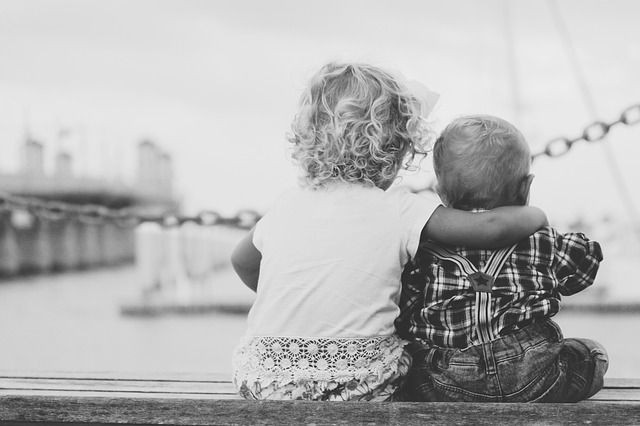The Sibling Effect: How Brothers And Sisters Impact Mental Health And Shape Personality

Although none of us are able to choose our families, research shows that they heavily influence the type of person we eventually grow into. Here are some interesting ways your sibling relationships (or lack thereof) can shape your personality, for the better or worse.
Siblings: Brothers, Sisters, And Halfsies
Our siblings are our first friends, and in some cases, our closest friends. It seems natural that our relationship with our siblings and our related birth order would play a role in shaping our overall personality. For example, a 2014 study on sibling relationships found that individuals with brothers and sisters tend to be empathetic, caring, and more generous than their only-child counterparts. This may be due to a lifetime of learning to share and compromise.
What type of sibling you have can also affect your personality. For example, Health.com reported that having a brother or sister of the opposite sex could give a a sibling an advantage when it came to dating and finding a partner. A 1983 study revealed that college students who had an opposite-sex sibling found it easier to make conversation with potential romantic partners.
In addition, some research has suggested that having a half-sibling, one in which you share only one parent, may increase children's risk of engaging in drugs and sexual activity by the time they turn 15. For example, a 2014 study found that children with a half sibling were 65 percent more likely than children with only full siblings to have used marijuana, uppers, inhalants, cocaine, crack, hallucinogens, sedatives, or other drugs before they turned 15 years old. These children were also 2.5 times more likely to have had sex by their 15th birthday. Although the reason for this is not entirely clear, the scientists believe that it’s most likely the parent’s traumatic divorce, not the introduction of a half-sibling, that most strongly influences this trend.
Birth Order Matters
However, perhaps the most significant way that siblings affect your personality may be birth order. A large body of research has been conducted on birth order and how family hierarchy influences your future personality. For example, it’s now well known that first-born children tend to be more ambitious than their younger siblings. This is especially true if they are a first-born girl, a 2014 study from the University of Essex in the UK found.They also tend to be more neurotic, reliable, and at times over-responsible. According to The Huffington Post, this is because their first-time parents tend to be far more controlling and attentive with them than their younger siblings.
Those caught in the middle tend to be people pleasers, laid back, and less ambitious. Growing up with older and younger siblings could make you more concerned with fairness as you get older, and as a result these siblings tend to become great negotiators, The Huffington Post reported.
The youngest siblings usually grow up to be charming and likeable and have personalities most would describe as “the life of the party.”
Most evidence suggests that having siblings actually results in a more responsible, mature child who loves structure, ASAPThought reported in a 2015 YouTube video. In addition, only children have similar high expectations as first-borns, only these expectations always remain high as they are never overshadowed by younger siblings. As a result, only children may also develop to be very academic, creative, and resourceful adults.
Read More:
Children With Half-Siblings More Likely To Engage In Drug Use And Sex Early In Life: Read Here
Sibling Rivalry: Firstborn Girls More Likely To Be Ambitious, Successful In Life Due To Nurturing: Read Here



























